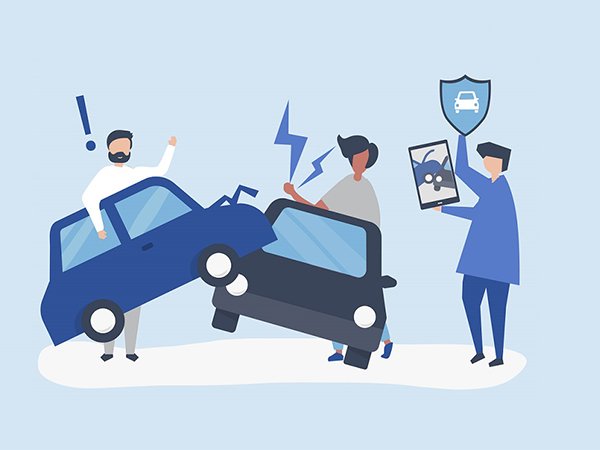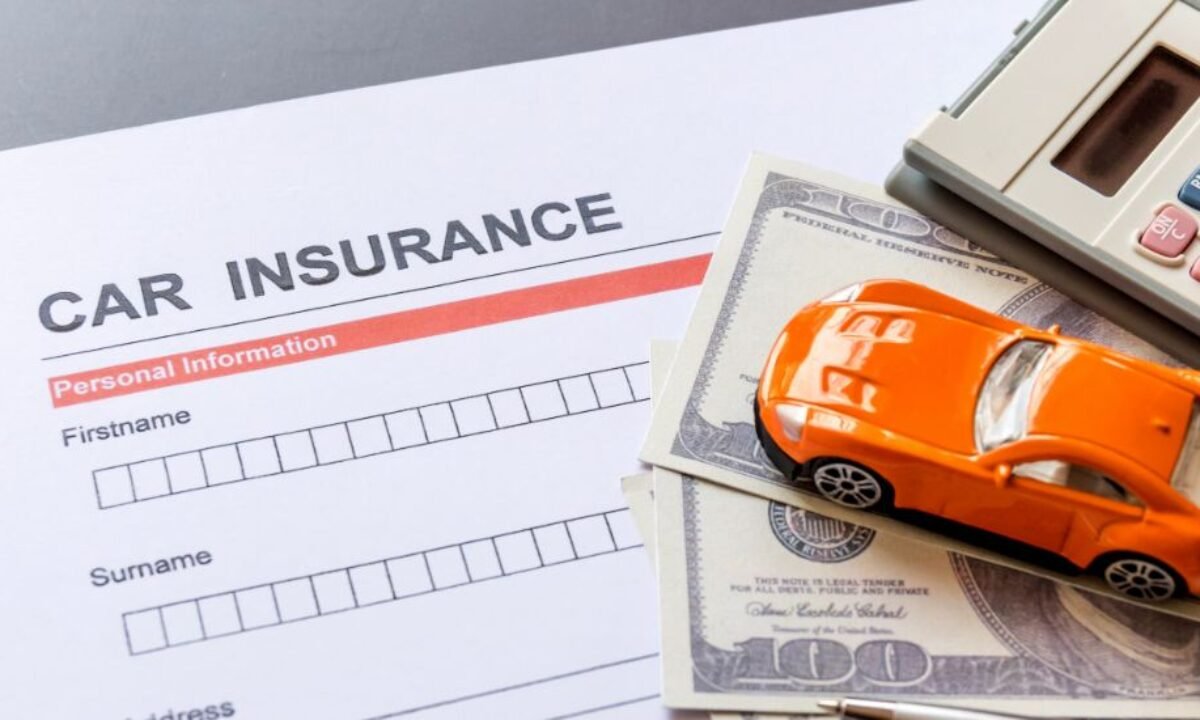Understanding Accident Responses in Chicago
Experiencing a car accident can be a disorienting and stressful situation. It is vital to remain calm and respond appropriately to safeguard your rights and responsibilities. In Chicago, as in many places, there are specific steps you should follow immediately following an accident. Understanding these steps can help streamline the process and potentially protect you from future complications.
Initially, ensure your safety and that of all involved. If there are injuries, call emergency services right away. Once you have verified everyone’s safety and called for assistance, proceed to gather critical information. This includes exchanging contact and insurance details with the other driver, capturing photos of the incident, and documenting the names of any witnesses. This information is pivotal, especially if you later decide to talk to other insurance companies related to the accident.
It is important to note that communicating with other insurance representatives can have various implications. Before engaging in discussions, most experts recommend understanding your own policy details and obligations. This will prepare you for any inquiries from the insurance adjuster regarding the accident. Be mindful that while you are encouraged to provide pertinent information about the accident, you should also be cautious in your discussions to avoid inadvertently compromising your position.
In the days following the accident, insurance claims will likely necessitate communication with all parties involved. Assess whether you should talk to other insurance after an accident in Chicago, as each case may differ based on liability and other factors. Collectively, these elements are essential in determining the path for your claim process and ensuring that you receive a fair outcome.
Understanding Insurance Policies
Insurance policies serve as protective measures for individuals and businesses, safeguarding them against unforeseen risks, particularly in the case of an accident. In the event of a vehicle collision, understanding the intricacies of different types of coverage becomes essential, especially when considering the question, “should I talk to other insurance after an accident in Chicago?”
One critical component of auto insurance is liability coverage. This type of policy is designed to cover damages incurred by other parties when the insured driver is at fault in an accident. It essentially protects the driver’s financial interests by ensuring that costs related to property damage and bodily injury are handled, thus avoiding out-of-pocket expenses. In scenarios where a driver is deemed liable, this coverage can be essential, highlighting the importance of reviewing such terms after an accident.
Collision coverage is another key term in the realm of insurance. Unlike liability coverage, which addresses the other party’s damages, collision coverage pertains to damages sustained by the insured vehicle itself, regardless of fault. Understanding this distinction is crucial; it can influence whether the insured chooses to contact their own insurance provider or the other party’s insurance. For instance, drivers might still wonder if they should talk to other insurance after an accident in Chicago if they anticipate filing a claim under their own collision policy.
Lastly, uninsured motorist coverage offers protection when the insured is involved in an accident with a driver who does not have insurance. This might lead to considerations regarding communication with other insurance companies, as the insured may wish to pursue claims related to the accident. Therefore, navigating the specifics of these insurance terms and understanding how they function can significantly impact decisions made post-accident, including whether to reach out to another insurer.
Legal Obligations After an Accident
Following an accident in Chicago, drivers must adhere to several legal obligations to ensure compliance with state laws. Firstly, it is essential to assess whether injuries have occurred or if significant damage has been inflicted upon vehicles or property. If so, the accident must be reported to the police. According to the Illinois Vehicle Code, a report must be filed if the accident results in personal injury, death, or property damage that exceeds a certain monetary threshold.
When contacting law enforcement, it is prudent to provide thorough details about the incident. Police officers typically create an official report that can serve as a significant document in any further insurance discussions or legal proceedings. This report will detail the parties involved, the circumstances of the accident, and any violation of traffic laws. Understanding the importance of this report emphasizes the question: should I talk to other insurance after an accident in Chicago? The answer often depends on the particulars documented by the police.
In addition to notifying the authorities, it is crucial for drivers to document the accident scene meticulously. This includes taking photographs of vehicle positions, tire marks, road conditions, and any visible injuries. Collecting contact information from witnesses is also advisable, as their accounts may prove invaluable during claims processes. Furthermore, drivers should seek to exchange insurance information with other parties involved in the accident while being mindful that acknowledgment of fault can have legal implications.
State laws dictate when to contact other insurance companies. If an individual was at fault, they must inform their insurance provider promptly. Conversely, if they are not at fault, they should still document the accident and communicate with their insurer to understand their coverage options. This may lead to the consideration of whether they should talk to other insurance after an accident in Chicago. Navigating these obligations with proper understanding can significantly impact any subsequent claims and legal outcomes.
Pros and Cons of Talking to Other Insurance
Engaging in conversation with another party’s insurance company after a car accident in Chicago can have both advantages and disadvantages. It is crucial for individuals involved in an accident to carefully weigh these factors before making a decision about whether they should talk to other insurance representatives.
One of the primary benefits of speaking with the other party’s insurance is the potential to expedite claims processing. When clear communication is established, claims can often be resolved more swiftly, allowing both parties to move forward without prolonged disputes. Additionally, collaboration with the other insurance company might lead to a more comprehensive understanding of the accident circumstances, ensuring all relevant details are considered during the claims assessment.
However, there are notable risks involved in discussing the accident with the other insurance. A significant concern is the possibility of inadvertently admitting fault during these conversations. Statements made in a moment of stress or misunderstanding can be interpreted as acknowledgments of liability, which may complicate the claims process. Such admissions can adversely affect one’s own insurance claim, leading to increased premiums or denial of coverage altogether.
Furthermore, insurance representatives are trained to gather information that could limit their liability. This means that they might pose leading questions intended to elicit responses that work against your interests. Therefore, it is often prudent for individuals to consult with their own insurance company or a legal professional before engaging with the other party’s insurer. This approach helps ensure that one’s rights and interests are protected while navigating the complexities of an accident claim.
In conclusion, whether or not individuals should talk to other insurance after an accident in Chicago is a nuanced decision that requires careful consideration of both the benefits and disadvantages involved. Understanding these factors can guide individuals in making informed choices regarding their communications with insurance companies.
When to Contact Your Own Insurance
After experiencing an accident in Chicago, one of the critical decisions to make involves contacting an insurance company. While it may seem appropriate to reach out to the other party’s insurance provider, there are specific scenarios where contacting your own insurance first is advisable. Generally, if you are involved in an accident, it is recommended to notify your insurance company, regardless of who is at fault.
One primary reason to contact your own insurance company is to ensure that your interests are adequately protected. Your insurance agent understands the terms of your policy and can provide guidance on your entitlements. Especially if you have comprehensive coverage, your insurer will review the incident and guide you through the claims process. They can assist in obtaining necessary repairs and addressing medical expenses that may arise from the accident.
Additionally, there may be circumstances where fault is unclear at the scene. In such situations, your insurance agent can provide you with the necessary support. They will analyze the accident details and liaise with the other party’s insurer if needed. It’s essential to remember that if you do not report the accident to your own insurer, you risk losing your rights to coverage, leading to complications down the line. Furthermore, it is important to check your policy’s provisions regarding timely notification of accidents, as late reporting can affect your claims.
Moreover, if you suspect that extensive damage or serious injuries may occur, reaching out to your own insurance first may expedite handling the situation. While you may still want to talk to other insurance after the accident, your own insurer can prepare you for any potential disputes that could arise.
What Information to Share
When involved in an accident, communicating with insurance representatives is a critical step in the claims process. However, it is essential to share only specific information to avoid unnecessary complications. First and foremost, provide factual details regarding the incident. This includes the date and time of the accident, the exact location, and a clear description of the events leading up to the collision. Keeping the details objective assists both insurance companies in evaluating the claim and determining liability.
Additionally, it is prudent to share information regarding the vehicles involved. Make sure to provide the make, model, and license plate numbers of both vehicles. If there were any witnesses present, their contact information should also be given, as this can assist in corroborating the facts of the incident. Sharing such information is crucial to the claims process, but it is vital to refrain from discussing personal opinions about who may have been at fault or making statements that could be interpreted as admissions of guilt.
Furthermore, you should also consider sharing information related to any injuries sustained during the accident, but only with your own insurance company. Details about medical treatment, if applicable, can be significant in your own claim. However, when communicating with the other driver’s insurance company, focus on providing basic details and avoid engaging in discussions that could be misconstrued. Remember, if you are unclear or uncomfortable about what to share, it is always advisable to consult with a legal professional. This will ensure you are adequately informed about your rights and obligations, particularly when considering whether you should talk to other insurance after an accident in Chicago.
How to Manage Communication
Following an accident in Chicago, managing communication with insurance companies is a critical step in ensuring an efficient claims process. The first best practice is to stay calm and composed when interacting with insurance representatives. Emotions can run high after an accident, but maintaining a level head can facilitate clearer communication and prevent misunderstandings.
It is advisable to document all interactions with insurance companies. This includes taking notes during phone conversations, saving emails, and maintaining records of any forms submitted. Details such as names, dates, and the substance of discussions can be invaluable later if disputes arise. Additionally, having a personal log helps you keep track of the timeline of events, which is essential when asking, should I talk to other insurance after accident in Chicago? You will want to reference your records to hold all parties accountable.
When discussing your accident with other insurance companies, be cautious about the information you share. Stick to the facts without delving into speculation or expressing guilt. Clearly articulate the details of the incident, and avoid confirming any liability or admitting fault, as these statements can be used against you in the claims process.
It is also essential to recognize when legal advice is necessary. If the communication with both your insurer and the other party’s insurer becomes complex or contentious, consulting with an attorney specializing in accident claims can provide guidance. An attorney can help you maneuver through confusing claims processes and ensure that your rights are protected. You might wonder, should I talk to other insurance after an accident in Chicago, but it is important to consult with a legal expert in such cases if uncertainty exists.
Navigating Claims After an Accident
Following an accident in Chicago, understanding the claims process is crucial for ensuring that all parties involved can address damages and injuries effectively. The process generally begins with the driver reporting the accident to their respective insurance provider. When you ask yourself, “should I talk to other insurance after an accident in Chicago?” it is essential to understand how to proceed with claims and documentation effectively.
Accident victims must gather comprehensive documentation to file a claim. This typically includes a police report, photographs of the accident scene, medical records, and any witness statements. Each insurance company will have its requirements, but these documents serve as vital evidence in supporting your claim. If you are looking to discuss the accident with the other party’s insurance, maintaining a clear and neutral tone is advisable to facilitate a smoother claims process.
Once the claim is filed, an insurance adjuster will be assigned to review the details. This may involve various steps, including interviews, further investigation, and potentially additional documentation requests. Timelines for claims processing can vary significantly based on several factors, including the complexity of the case and responsiveness of the parties involved. Typically, it is advisable to follow up with both your insurance and the other party’s insurance regularly to ensure that the claim is progressing and to address any questions that may arise promptly.
Lastly, understanding your rights and obligations during this process is paramount. Simple inquiries such as, “should I talk to other insurance after an accident in Chicago?” can yield significant advantages in understanding how different coverages interact. Engaging the other party’s insurance may provide additional insight into how to navigate potential claims accurately and effectively.
Conclusion: Making Informed Decisions
After experiencing an accident in Chicago, it is essential to understand the implications of interacting with the other party’s insurance provider. Engaging with their insurer can be a complex process, and recognizing your rights and responsibilities is vital to navigating this landscape effectively. Knowledge of the laws and regulations applicable in your state can empower you to make informed decisions. Consider consulting with a legal professional or insurance expert who can provide guidance tailored to your specific circumstances.
Furthermore, one should carefully evaluate the terms of any initial offers made by the other insurance company. Often, these offers may not fully cover the extent of your damages, both physical and emotional. Hence, asking yourself, “should I talk to other insurance after an accident in Chicago?” is a prudent query. It can lead to a more comprehensive understanding of your options, especially if you believe you deserve compensation that reflects your losses accurately.
Additionally, communicating with your insurer about the accident’s details is crucial. Your own insurance company may provide added support and insight into whether further engagement with the other driver’s insurance is advantageous for you. In summary, an informed approach can significantly influence the outcome of your situation. Ultimately, prioritizing clarity and proper guidance can alleviate the stress that often accompanies such incidents while ensuring that you receive the necessary compensation and support.
Read More:
- Why Does My Employer Need Proof of My Auto Insurance in the USA?
- Northwestern Mutual vs. Foremost Insurance Company: A Insurance Solutions
- Understanding the Cost of a Pediatric Dentist Visit Without Insurance
- Can You Sue an Insurance Company for Dropping You?
- Does Citizens Insurance Cover Solar Panels in California? A Detailed Guide



